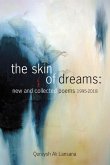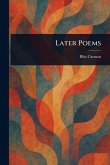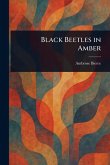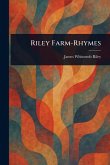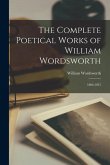Published in 1916, Chicago Poems was the first poetry book by Carl Sandburg to be accepted by a major publisher. These poems are not only about Chicago but the United States, its workers, freedoms, natural beauty, and ideals. Sandburg uses a free verse style influenced by Walt Whitman, with simple words and clear messages. In this new edition by American publisher Yellow Leaf Press, historical information is added about the author and his life and impact on American literature. Chicago Poems helped Sandburg win the Pulitzer Prize in 1950 for his Collected Poems. This classic American poetry book is written in a timeless style admired by fellow writers such as Amy Lowell and H.L. Mencken. "Carl Sandburg was more than the voice of America, more than the poet of its strength and genius. He was America." President Lyndon B. Johnson Newly added in this edition: * Historical background information about Chicago Poems and biography of Carl Sandburg
Bitte wählen Sie Ihr Anliegen aus.
Rechnungen
Retourenschein anfordern
Bestellstatus
Storno


